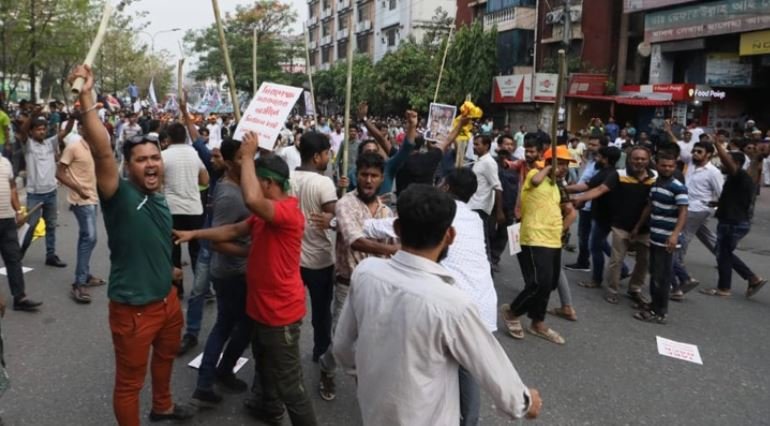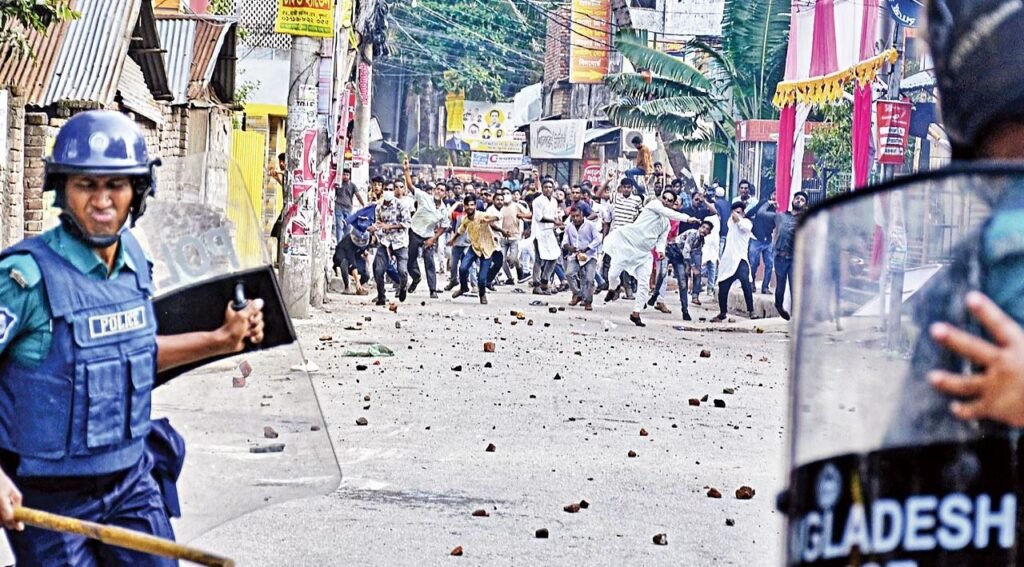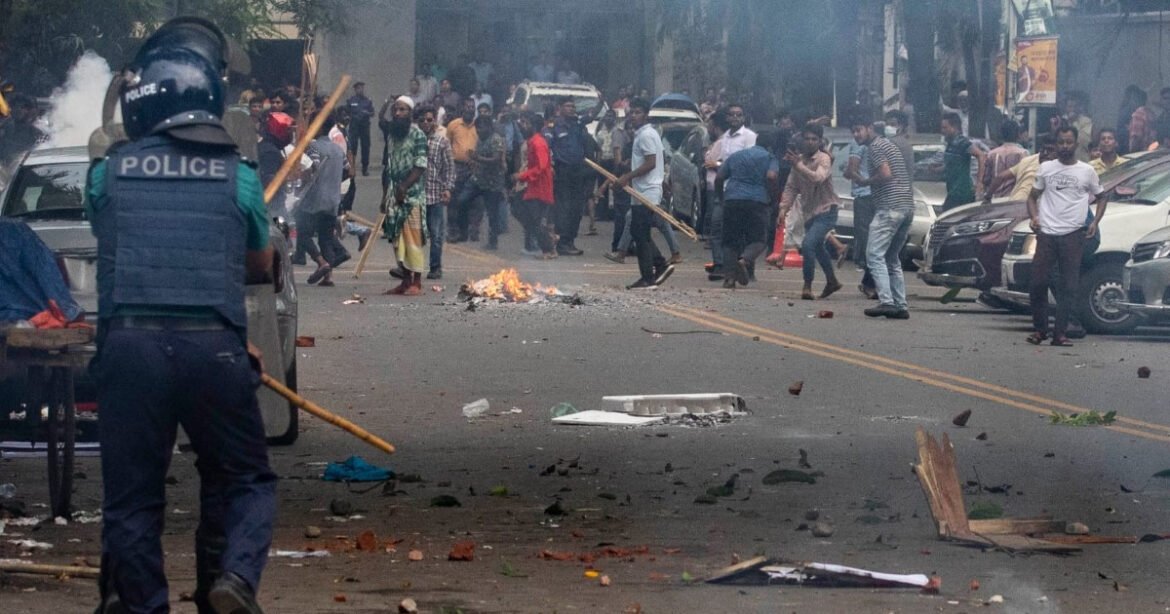In the lead-up to the national elections next year, Bangladesh Nationalist Party (BNP) has embarked on a strategy of organizing protests and demonstrations against the government. However, these demonstrations have often turned violent, leading to clashes with the police.
Clash erupts in the capital
The recent clash between BNP members and the Dhaka Metropolitan Police in the Science Lab area highlights the escalating tensions between the party and law enforcement. BNP had organized an anti-government procession, protesting the arrests of its activists, rising commodity prices, and load shedding. The clash resulted in the vandalism of several vehicles, including BRTC buses, and left numerous police personnel injured. While the police claim they were forced to retaliate against the violent protesters, BNP’s media cell maintains that the police acted without provocation.

Khulna violence mars countrywide demonstrations
Similar clashes occurred in Khulna during BNP’s countrywide demonstrations, leading to injuries on both sides. BNP had called for rallies in 27 districts and cities, including Dhaka, demanding the resignation of the government and the formation of a non-partisan caretaker government for the next national elections. Witnesses reported that the clash broke out when a procession of BNP activists was heading to a rally, resulting in police using truncheons, tear gas shells, and shotguns to disperse the protesters. BNP leaders claim the police attacked them without provocation, while the police state that they acted in self-defence!

BNP’s call for a neutral election
During the rally in Dhaka, BNP Secretary General Mirza Fakhrul Islam Alamgir criticized the Awami League government and called for a credible national election under a caretaker government. He urged the law enforcement agencies to play a neutral role, emphasizing the importance of a non-partisan caretaker government in ensuring a fair electoral process. BNP has been vocal about its discontent with the current government’s policies, including the filing of what they consider “fictitious” cases against opposition leaders and activists, rising prices of essentials, and frequent power cuts.
Impact on BNP’s prospects in the ensuing elections
BNP’s strategy of organizing violent protests raises questions about its effectiveness and potential impact on the upcoming national elections. While protests can be a powerful tool for expressing discontent and mobilizing support, resorting to violence risks alienating potential supporters and undermining the party’s credibility. The clashes between BNP activists and law enforcement agencies may further polarize public opinion and contribute to a perception of the party as disruptive and prone to unrest.
Furthermore, the call for a non-partisan caretaker government, while appealing to some segments of the population, may not resonate with everyone. The caretaker government system has been abolished in Bangladesh, and the ruling party argues that it is no longer necessary for ensuring fair elections. BNP’s insistence on its reinstatement could be seen as an attempt to gain an advantage rather than a genuine concern for electoral integrity.
As the country approaches the national elections, BNP will need to carefully evaluate the effectiveness of its current strategy. It may be more productive for the party to focus on building alliances, engaging in constructive dialogue, and presenting clear policy alternatives to win the trust and support of the electorate. By adopting a more inclusive and peaceful approach, BNP could enhance its chances of success in the polls and contribute to a healthy democratic process in Bangladesh.
To conclude, BNP’s strategy of organizing violent protests raises concerns about its impact on the upcoming national elections. While the party seeks to highlight its grievances and rally support against the current government, resorting to violence risks alienating potential supporters and undermining its credibility. To achieve its goals and make a meaningful impact in the electoral process, BNP would benefit from adopting a more inclusive and peaceful approach that focuses on constructive dialogue and presenting clear policy alternatives.


